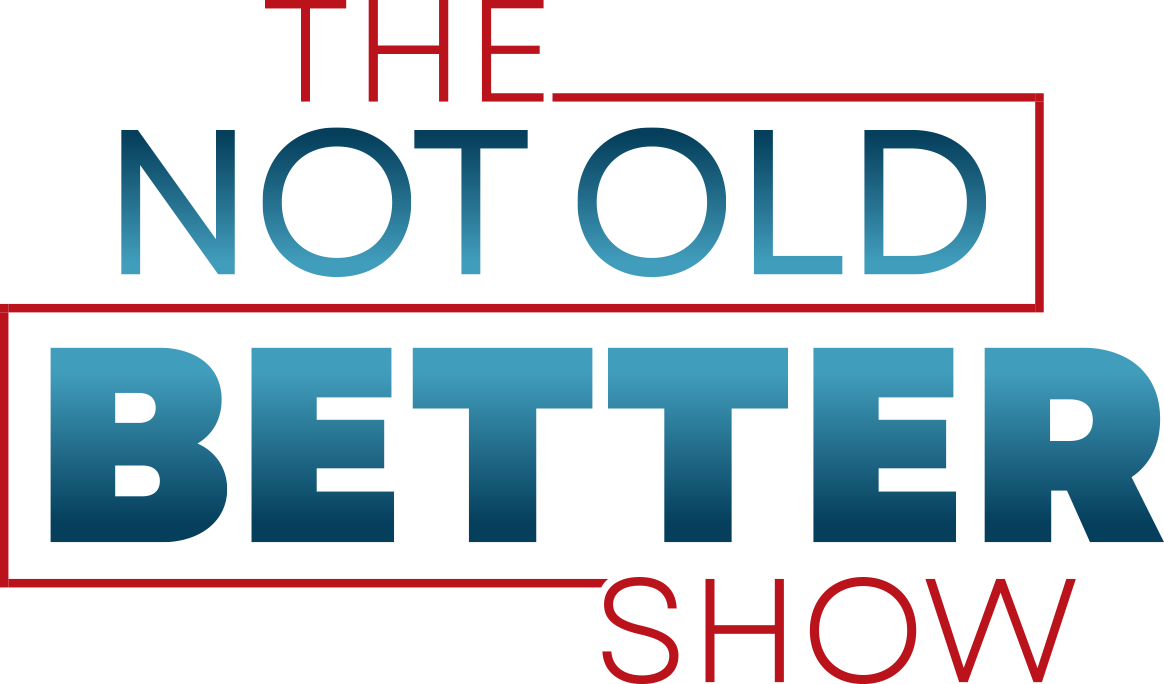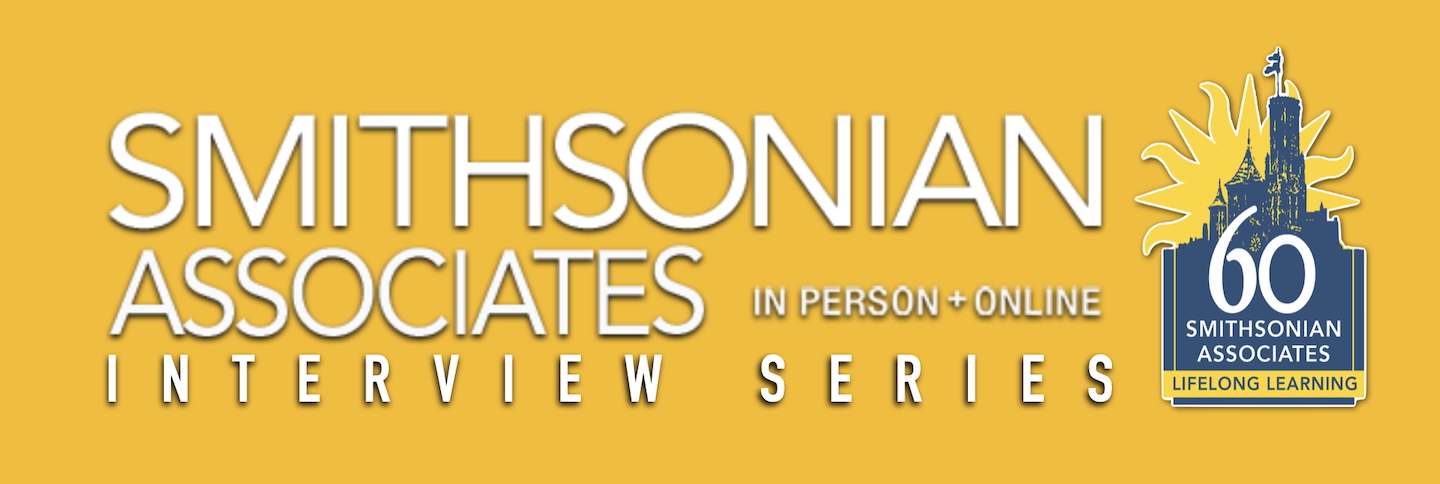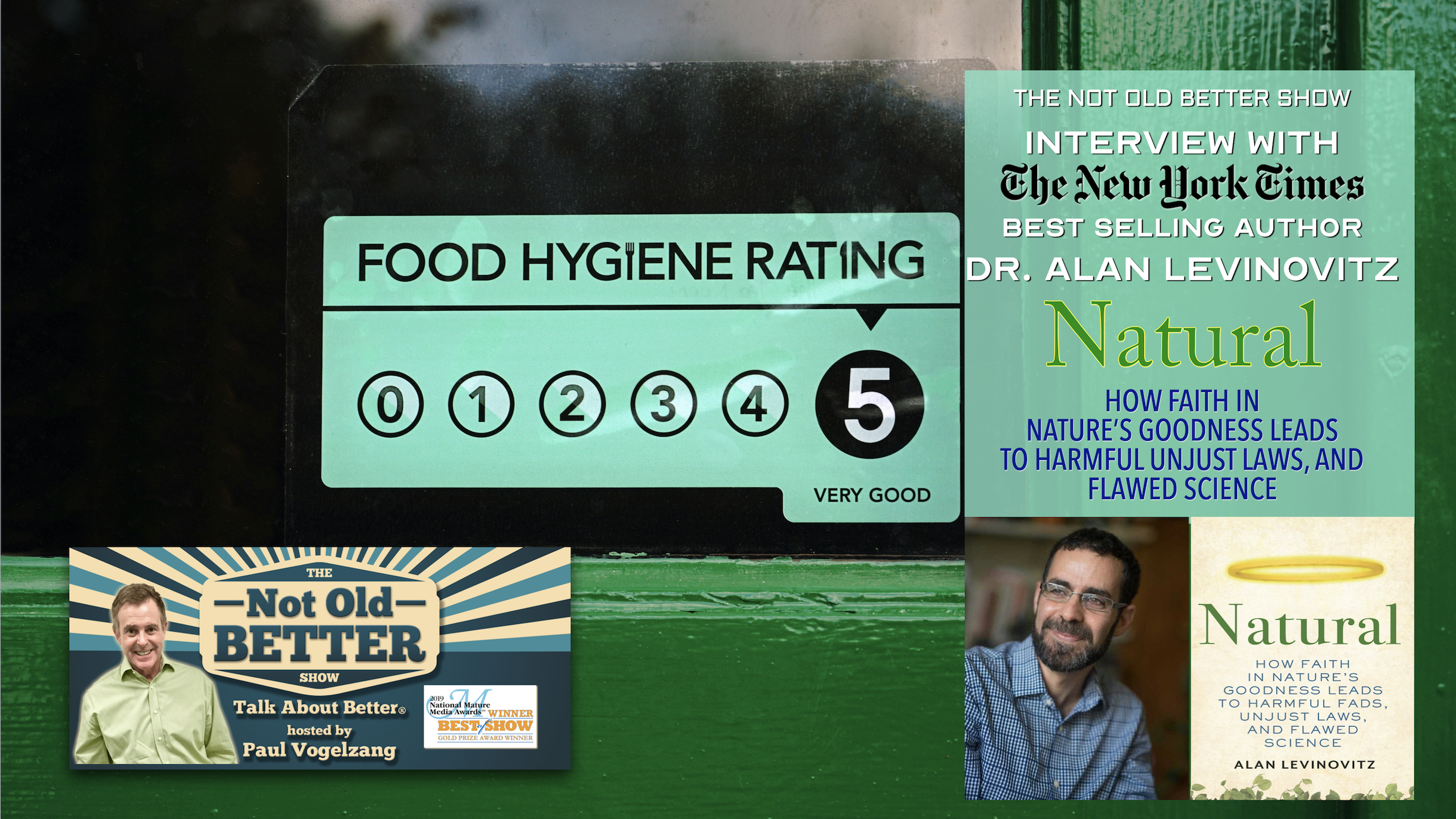What is ‘Natural,’ Food, Life, and Religion – Alan Levinovitz
Art of Living Author Interview Series…
Welcome to The Not Old Better Show. I’m Paul Vogelzang, and this is episode #455.
As part of our Art Of Living author interview series, today’s show is fascinating.
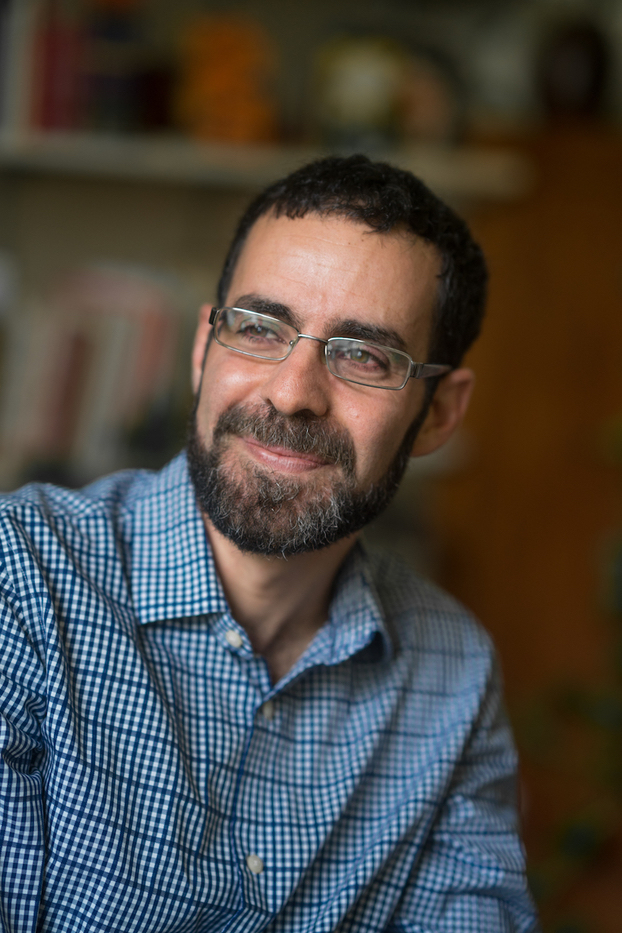 We’ll be speaking with author, academic, and journalist Alan Levinovitz about his new book, ‘Natural: “How Faith in Nature’s Goodness Leads to Harmful Fads…”. Dr. Levinovitz will be reading a passage from his new book, too. I loved the book, and let me tell you a bit about this subject:
We’ll be speaking with author, academic, and journalist Alan Levinovitz about his new book, ‘Natural: “How Faith in Nature’s Goodness Leads to Harmful Fads…”. Dr. Levinovitz will be reading a passage from his new book, too. I loved the book, and let me tell you a bit about this subject:
Debates about what can be called ‘natural’ might seem unnecessary today, or even quaint, but not so this one, especially because our guest Alan Levinovitz answers our questions about how this focus on ‘natural” drives more attention to COVID, religion, and the climate crisis
From ‘clean eating’ to the countryside to Goop, ‘natural’ is assumed to be good and is almost a new religion, Dr. Levinovitz tells us today.
Additionally, we’ll hear from Dr. Levinovitz, who is an assistant professor of religion at James Madison University and a freelance journalist about our collective enchantment contradictions with what is “Natural,” and with the concept of “natural,” and tells us that often what qualifies as Natural is not simply a nutritional issue, but a moral one.
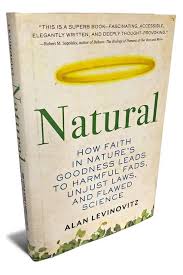 “Natural” equates to “goodness,” according to Dr. Levinovitz, “Seeking out natural products is about health, yes, but holistic health,” he wrote. “Physical and spiritual, personal, and planetary. Nature becomes a secular stand-in for God, and the word ‘natural’ a synonym for ‘holy, and even religion.” Let’s hear from Dr. Alan Levinovitz, reading from his new book,
“Natural” equates to “goodness,” according to Dr. Levinovitz, “Seeking out natural products is about health, yes, but holistic health,” he wrote. “Physical and spiritual, personal, and planetary. Nature becomes a secular stand-in for God, and the word ‘natural’ a synonym for ‘holy, and even religion.” Let’s hear from Dr. Alan Levinovitz, reading from his new book,
That of course is our guest today, author, academic, and journalist Alan Levinovitz reading from his new book, ‘Natural: “How Faith in Nature’s Goodness Leads to Harmful Fads…”
Please join me in welcoming to The Not Old Better Show, author, academic, and journalist Alan Levinovitz.
My thanks to the author, academic and journalist Alan Levinovitz, ‘Natural: “How Faith in Nature’s Goodness Leads to Harmful Fads…”And, my thanks to you, my wonderful Not Old Better Show audience. Please be safe, practice smart social distancing, be well, and remember, Let’s Talk About Better. The Not Old Better Show. Thanks, everybody.
Please find out more at https://notold-better.com
TRANSCRIPT:
Paul Vogelzang (00:02):
Welcome to the Nat old better show art of living author interview series. I’m Paul Vogel saying, and this is episode number four 55
Paul Vogelzang (00:16):
As part of our art of living author interview series. Today’s show is fascinating. We will be speaking with author academic and journalist, dr. Allen, the benefits about his new book, natural, how faith in nature’s goodness leads to harmful fads. Dr. Levin Lovitz will be reading a passage from his new book too. I loved the book. And let me tell you a little bit about this subject debates about what could be called natural might seem unnecessary today or even quaint, but not. So this one, especially because our guests, dr. Allen Rabinovitz answers our questions about how this focus on natural drives more attention to COVID. It relates to religion, and it relates to the climate crisis from clean eating to the countryside to goop. Natural is assumed to be good and is almost a new religion. Dr. [inaudible] will tell us today. Additionally, we’ll hear from dr. [inaudible],
Paul Vogelzang (01:12):
Who is an assistant professor of religion at James Madison university and a freelance journalist about our collective entanglement that contradictions with what is natural and with the concept of natural. And dr. [inaudible] Tells us that often what qualifies as natural is not simply a nutritional issue, but a moral one, natural equates to goodness, according to dr. And it’s seeking out natural products is about health. Yes, but holistic health. According to dr. Legitimates, physical and spiritual, personal and planetary natural and nature becomes a secular standard for God and the word natural, a synonym for Holy and even religion. Let’s hear from dr. Allen Levin. Yvette’s reading from his new book
Dr. Alan Levinovitz (02:02):
As with all religious faiths, the consequences of faith in nature’s goodness, differ dramatically from one person to the next, for the Orthodox nature. Worship is a persistent and conscious factor in every aspect of their lives. They constantly ask themselves what would nature want in the voting booth and during the school selection process, while shopping for cookware and the food, they will prepare in it like monks, some, make enormous sacrifices, living completely off the grid, or giving up clothing as a part of the nature wrist movement for the majority of us. However, faith in nature’s goodness only affects certain aspects of our lives. Some food choices here or there, or maybe that are expensive organic mattress for the baby’s crib, even. So it is important to recognize that the effects of a lukewarm faith are not limited to individuals, decisions, nature, worship, infuses culture in myriad ways.
Dr. Alan Levinovitz (02:59):
It’s power hidden under the sediment of time and built into the unconscious demands of custom and language, making it all the more difficult to recognize and challenge rejecting theological versions of nature does not entail embracing their opposite. We should not ignore the genuine wisdom of those who see divinity reflected in nature since they have often learned a great deal from careful attention to natural systems, appeals to natural goodness are not always fallacious and categorically dismissing them is its own equally pernicious form of faith. Sometimes unnatural solutions will be catastrophic misguided sometimes not, but only by identifying and abandoning faith in nature’s goodness, wherever it occurs. Can we know when that’s the case, since this faith may reflect an inability or unwillingness to think outside one’s privileged context, bracketing, it is especially important when it comes to social and political policy. The best future for humanity and nature must be built on dialogue and evidence, not taboos and zealotry.
Paul Vogelzang (04:08):
That of course is our guest today. Author academic and journalist, Alan, the vinegar it’s reading from his new book, natural how faith in nature’s goodness leads to harmful fads. Please join me in welcoming to the noddle better show author, an academic journalist, dr. Allen. [inaudible] Dr. Alan, [inaudible] welcome to the program. Thank you so much for having me. Of course, it’s a pleasure to talk to you. I’m I’m excited about this subject and the title of the book is natural. We’re going to get into that and I have to tell you the title of the book just caught me immediately, as soon as I saw it, because it’s one of those words that you think is just so peaceful on the surface, but here in this context, it isn’t so much. And so why don’t you start by telling us what is it about the word that the, this is kind of this notion of natural that makes it so contentious and so controversial here?
Dr. Alan Levinovitz (05:02):
Well, what you’ve identified is one of the things that drew me to studying the idea of naturalness to begin with, which is that the word on the surface seems relatively an ideological. It seems secular. It seems harmless. If anything, it represents something good. But as I started to look around and think about the way in which the word natural was deployed, I saw that in fact, it was incredibly ideological that it was used time and time again, to defend people’s principles on everything from economic systems to the kind of food that they thought we ought to be eating. And so I came to believe that it was very important to call attention to this word, which unlike words, you know, that people see as ideological words like God, for example, they’re Holy that there was this other word, natural that was doing the same kind of work and no one seemed to be noticing it.
Paul Vogelzang (05:58):
Well, I appreciate your giving us that sense of what the word really is, is all about here in the title. So when you say natural, at least in the book here, it’s almost referred to as this indulgence and, and maybe even an illusion. So tell us what you mean by that.
Dr. Alan Levinovitz (06:14):
Well, the, the way in which people think about naturalness is not confined to a description of the natural world. It also has a moral valence. And what I mean by that is that people use the word natural as a synonym for good, or even a synonym for Holy. In other words, what natural means is that something is pure, that it is sanctified and therefore that everything unnatural is evil and impure. And so there’s an incredible power in this word that allows people to create an illusion of objectivity that taps into the fact that natural describes simply what is in nature. But in fact, hidden under that objectivity are deeply ideological claims that aren’t necessarily found in the natural world at all.
Paul Vogelzang (07:11):
You’ve generously read a section of the book and we really appreciate that. Thank you. Again, you’re a professor of religion and, and the reading that you chose, references, religion talks a little bit about divinity and, and I’ll, I’ll use the word secularity. And so I wonder what role, those words, those elements, the elements of religion play in this controversy of, of nature.
Dr. Alan Levinovitz (07:36):
This fear of religions authority shrinks. And by that, I mean, we no longer go to priests or pastors or rabbis or III moms for guidance on what kind of food is healthy or for information about what is going to happen to our climate or about how we ought to treat the planet. We now turn to secular sources, scientists, and nutritionists, and so on. As that sphere shrinks, people still need the kind of moral guidance and sets of commandments and clear distinctions between good and evil that were once the realm of religion. And so what natural does is it allows us to keep the religious distinctions of good and evil, pure, and impure, and wrap them in what looks like secular concepts, you know, evolutionary biology or the natural human body, whatever they happen to be.
Paul Vogelzang (08:35):
We are with dr. Allen Levin. Yvette’s dr. Alan [inaudible] has written the new book natural. And we’re talking about the book today. Publisher’s weekly says about the book that it’s a nuanced plea for a more informed relationship with the natural world. I picked that out, dr. [inaudible] Because I liked that reference. Quite a bit of the reviews have been equally positive about the book. And as I say, I really enjoyed it, but I want to talk a little bit about the socio economic relationship here with the word natural and nature. And when you layer religion over this class issue, the poor, at least in your book come out much further at the bottom rungs of the ladder. So what, what is it that you’re concerned about with relation to class and status and privilege here? What
Dr. Alan Levinovitz (09:23):
Came very concerned about when I looked at how people use the word natural is that often romanticizing nature is a function of privilege. And this was brought home to me by the late cholesterol. So Yuma he’s a professor was a professor of international development at Harvard. He grew up in rural Kenya, and this was a place, you know, it was far more natural than surely. Most of the places that your listeners are live in today, there was very little artificial light at night, everything was dark and cholesterol. Yuma told me when you live in that situation, you’re very excited for unnatural things. You’re excited for a bus to arrive carrying books and medicine. And for the book I, what my own book, I traveled to Peru and I saw that there are wonderful aspects of living in a, you know, quote unquote, closer to a state of nature, but it is much easier to romanticize natural births or to romanticize natural food.
Dr. Alan Levinovitz (10:24):
When you haven’t had to worry about access to food or access to a hospital in case your natural birth goes wrong. That, that that’s something that, that really worries me. In addition to that, I think it’s no coincidence that natural things are more expensive and in the same way that religious divisions of the past often reinscribe class divisions. So if you think about the caste system as a kind of function of religion, I saw that the ability to afford natural items and the ability to participate in natural systems, whether it’s, you know, buying a car, that’s easier on the environment, those were often tied up with expense. And that concerns me because when being Holy is expensive, that’s, that’s a problem for the kind of social justice. I think most of us want to see.
Paul Vogelzang (11:18):
I couldn’t agree with you more about that. Let’s talk for a second about natural food, which gets an awful lot of attention. And maybe even for the wrong reasons, there’s some real contradictions here to chemicals can come from natural sources. In fact, the subtitle of your book, how faith in nature’s goodness leads to harmful fads, I think really kind of applies here to the, to this question. So tell us about some of the contradictions that go into this category of, of natural food. And, and the term that you use in the book is this flawed science that’s associated with it. If you go into
Dr. Alan Levinovitz (11:54):
Any store and you look around at the foods that are labeled as natural, and you take a sort of critical or skeptical eye, it starts to look almost ridiculous. You see foods that are packaged in plastic that have clearly been processed, that contain ingredients that have been shipped and flown from every corner of the earth, where the very crops that they are made from are not native crops. And so there’s a, there’s a, there’s an enormous disjunct between what it is that we consider natural and what actually is natural. And there’s, there’s actually there, you know, there’s nothing wrong in my view with consuming things that have been altered, right? That are not actually in the state of nature. What it seems to me is a problem is believing that what you are consuming is some kind of pure product of nature when it obviously isn’t, and then associating that naturalness with some, with all kinds of goodness, whether it’s goodness for the earth or goodness for your own health. When in fact it’s far more complicated than that.
Paul Vogelzang (13:01):
The other thing that comes to mind is as I kind of think about the, the component of food and, and naturalness is that it’s almost a movement. You know, you think about the whole foods brigade you, you hear and read about. And, and it’s almost a cult when it comes to some of these products in the book, there’s a reference to goop Gwyneth Paltrow’s lifestyle company. And that, that kind of clientele that audience, I suppose, Plex plays a big role in this kind of this cult notion. So what did you learn about the myths of natural products? Like the ones that are on sale? Not, not just pick on goop, but, but some of these natural products, what did you learn about some of these, the products that are really mythologized
Dr. Alan Levinovitz (13:46):
To bring this back to the centrality of religion as a religious studies professor, one prominent feature of these products is that they function like panaceas, they are cure ALS. And so the label natural indicates to the consumer, not just that it will be good for your physical health, but that it will also be good for your mental health, that it will be good for the health of your community, that it will be good for the health of the workers that produce the product, that it will be good for the health of the environment. And that concerns me because the real world is a world of tradeoffs. There is no such thing as a panacea. There is no such thing as a product that has no downsides. And I fear that our desire to believe in those kinds of mythic panaceas will get in the way of our ability to make informed decisions about the costs and benefits of what we consume.
Paul Vogelzang (14:44):
Dr. Allen Lebovitz last, last question for you. And it certainly is kind of a sign of the times. I, I, I hope you and your family are doing well with all of this quarantining that’s going on in the social distancing, but tell us about the issues that we face with COVID-19 and the potential to drive more attention to natural foods as a result of COVID-19
Dr. Alan Levinovitz (15:08):
Before I get to the natural foods, I want to note that one thing for me that has been extremely difficult with the lockdown in the quarantine is that I have not been able to see my parents. They live in California, they had planned a trip out to see me. And that was the first thing that came to my mind. And also the fact that, you know, my father is 92 years old mercifully and in excellent health, I hope to enjoy, I hope to enjoy many more years with him. But one thing that I point out to people all the time is that that, that a man living to the age of 92 is not, you know, it’s not a miracle these days, but it is wildly unnatural. The anthropologists that I’ve spoken with assure me that in pre-industrial societies and in Hunter gatherer communities, they it’s virtually unheard of to have someone that age.
Dr. Alan Levinovitz (16:03):
And so the extent to which we value naturalness should be balanced against the kinds of things that intervening in natural systems have allowed us to, to have. And for me that, you know, that involves that, but that’s my father. The other thing I would say that now, returning to the idea of COVID-19 and, and natural food, is that it is very easy to look at. COVID-19 like any evil thing, when something is a religion, you blame, you blame evil. So if natural is good, then we blame COVID-19 on the unnatural, whether it is unnatural food systems or unnatural industrial agriculture, unnatural global transportation systems. And what I fear may happen with COVID is that out of an UN an understandable sense of crisis and a recognition that we are harming the natural world, people will believe that the solutions involve a turn to more naturalists, rather than a complicated reassessment of how we want to live. That will inevitably involve both natural and unnatural ways of eating and of living and so forth.
Paul Vogelzang (17:12):
Thank you. Well, good to hear about your 92 year old father in California. My mom is 92. She lives in Northern California.
Dr. Alan Levinovitz (17:19):
Oh. That’s where my dad is as well.
Paul Vogelzang (17:20):
Oh, okay. My mom is in central California. And so I’m originally from San Francisco and so we’re, I grew up in Bergen County. Okay, good, good. Well, good to connect with you all the way out here on the East coast is w we’ll put links up to where he can find out more about dr. Allen Rabinovitz and his new book. Natural. Dr. Allen Rabinovitz is a professor of religious studies at James Madison university out here in Virginia and dr. Allen benefits. We appreciate your so much. We wish you the best with the book, and we wish you the best during this social distancing time with you and your family and good wishes to your parents out in California. Likewise, it’s been a pleasure and an honor to talk with you. Thank you. My thanks to author academic and journalists, dr. Allen [inaudible], who’s written the new book, natural how faith in nature’s goodness leads to harmful fats and my thanks to you. My wonderful, not old better show audience, please be safe, practice smart, social distancing. Be well. And remember, let’s talk about better than not old better show. Thanks everybody.
